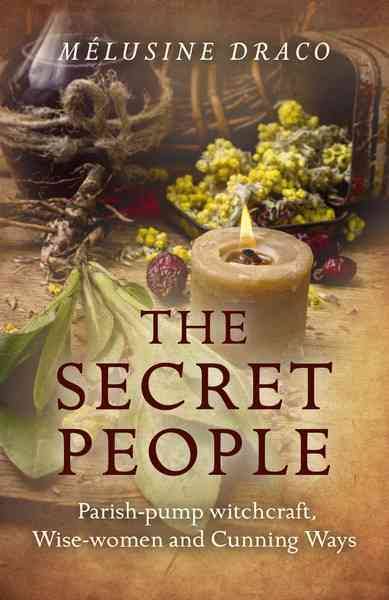The book's title, The Secret People, is a reference to E.W. Martin's book with the same title about English Village Life after the 1750's. For the British reader, this title is popular amongst the intended audience interested in British folk ways. As an American my first impression was of a secret society and while this might aid in selling some copies on this side of the Atlantic, it is really a much tamer read. Everything about this book appeals to the UK reader with a taste for history and the need to keep traditions alive though not necessarily in the way that I would have pictured it before reading. The British are well aware that they are the result of historical ethnic migrations and so you will find as much Roman influence here as Anglo Saxon.
Pagan and Christian traditions alike are presented as part of the tapestry of British historical traditions. Care seems to have been taken to write this in a way that would not offend your old church going relative. For example, activities are suggested that pagans can do openly at a Yule party with non-pagan friends and relatives. Folklore, divination, charms and spell casting are presented with a mind to historical accuracy. So the charms include Christian references to saints. For those familiar with trolldom charms or hoodoo, this mix of spell casting with Christianity will not seem strange. The section of the Old Calendar gives the religious traditions of each day of the month so Saints Days and Anglo Saxon seasons intermingle with Roman Holidays as if time has melted away.
The practical knowledge on keeping a garden, managing a household, herbal medicines, harvesting, and country crafts mix with folk magic in a way reminiscent of old fashioned household how to guides with some twists. How to clean a microwave is in the same chapter as prophetic dream pillows. As an intro to household herb use or starting a small garden, this book will give a taste but if you are well versed in either, you may just want to skim over it.
What I found educational were the chapters on the Parish healer and the Poacher. The parish-pump healer again is a historical figure who lives in the modern imagination on the threshold between scientific healing and folk medicine. The poacher, the most famous being Robin Hood, is another historical figure that has been obscured in legend. The legal and historical background helped me understand why poaching was historically significant.
Imbued with a kind of fondness and affection for the past, The Secret People reads like an Old Farmer's Almanac with more historical context and just a nod to modern pagan customs. As a resource for those starting to study the folk ways of Britain, it is a breezy read you can finish fast.
~review by Larissa Carlson
Author: Melusine Draco
Moon Books 2016
pp. 225, $22.95
The Secret People: Parish-pump witchcraft, Wise-women and Cunning Ways

©
2010 - 2024
Facing North
